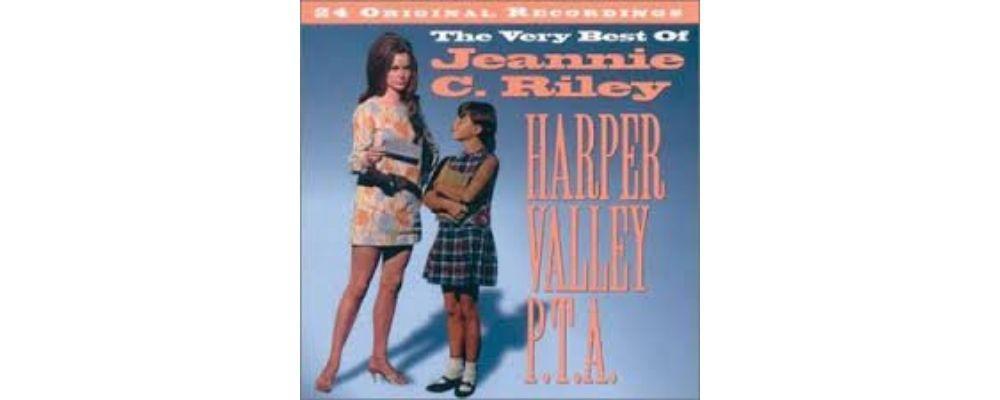In the four decades since its release, a simple Country song about a small town widow has become an anthem for women who dare to confront society’s moral standard bearers.
The theme and lyrics of Jeannie C. Riley’s “Harper Valley PTA” not only captured popular culture of the era in which the song was written, they have become metaphors for hypocrisy and misogyny.
Who doesn’t know the story? When the Harper Valley PTA issues a cowardly note suggesting that Mrs. Johnson is an unfit mother to a teenage daughter for reportedly “drinking, running ‘round with men and going wild” and wearing her dresses “way too high,” she shows up at the junior high clad in a miniskirt and wielding some unsavory truths about the PTA’s note-issuing leaders who are assembled self-righteously at the PTA meeting.
One by one she exposes indiscretions, implying that Mr. Baker’s secretary left town because of an unwanted pregnancy, that the widow Jones’ is an exhibitionist and that Mrs. Taylor is a closet alcoholic because of her philandering husband, Bobby, who has prodded Mrs. Johnson herself to engage in adulterous behavior with him. Mr. Harper isn’t even present because he’s once again staying too long at Kelly’s bar, and while Shirley Thompson is present, she’s been drinking before attending the school function.
In six tightly written stanzas, songwriter Tom T. Hall creates the powerful visual of what must have been mortified hypocrites with their secrets as freshly hung out as a line full of linens flopping in the wind. Listeners can see Mrs. Johnson walk to that blackboard for her moment of reckoning. Hall does not tell us why she is a widow, but given the fact that Mrs. Johnson’s daughter is in junior high – the now defunct precursor to middle school – she quite possibly lost her husband in Vietnam as the United States was fully engaged in the war there by 1968. Mini-skirts and mini-dresses were introduced in 1964 and donned by models, celebrities and entertainers, but in a small town they would still have raised eyebrows in 1968.
When Mrs. Johnson tells them that Harper Valley is just another “Peyton Place,” she was referring to a well-known book and movie that had become a television series in its fourth season when the song was released. “Peyton Place” had already become a metaphor for the kind of moral duplicity Mrs. Johnson was experiencing.
The song’s storyteller is revealed when she calls the event “the day my mama socked it to the Harper Valley PTA.” Sock-it-to-me was a catchphrase of the later ‘60s made popular by the comedy show, “Laugh In.” Shirts, posters, bumper stickers and other items proclaimed “sock-it-to-me.” Every mom had the recipe for a lemony Bundt cake called Sock-it-to-me Cake, a favorite for reunions and funerals.
With a name inspired by the name of a real Nashville-area school, Harpeth Valley Elementary, Harper Valley is not a real place – but it could be anywhere, which explains its enduring appeal. A perennial karaoke favorite, the song was first offered to songstress Skeeter Davis, who rejected it, but when it was recorded by artists Billie Jo Spears and Margie Singleton, Plantation records rushed to release the Riley version.
The single achieved the 1960s highest climb into the charts, jumping in its second week from No. 81 to No. 7 on the U.S. Billboard Hot 100. It reached No. 12 in the United Kingdom, No. 4 on the U.S. easy listening chart and No.1 on both the country and pop charts in Canada and No. 1 in Australia.
Selling more than six million records, Riley became the first woman to reach No.1 on U.S. pop and country charts simultaneously, holding that position until Dolly Parton’s “9 to 5” in 1981.
Riley’s recording netted her a Grammy award for best female country vocal performance and was nominated for Record of the Year and Song of the Year in the pop field.
Country music singers like Loretta Lynn, Dolly Parton, Lynn Anderson, Jeannie Seely and Dottie West included the tune on their albums, and Billy Ray Cyrus was one of the few male performers to cover it. Melinda Schneider and Beccy Cole covered the song on their 2014 album Great Women of Country. As recently as 2015 the song was included by the British punk rock band Squeeze on their Cradle to the Gravealbum.
Attesting further to the universal appeal of the message, the song has been translated and recorded in Sweden, Norway and Iceland.
Over the years the song has inspired other works. “Harper Valley P.T.A. (Later The Same Day)” was a parody written and recorded by comic country performer Sheb Wooley.
The tune was used with new lyrics by Tammy Faye Bakker in a song she recorded in the 1980s to protest what she believed was unfair treatment she and her husband, Jim, endured resulting from ministry related scandals.
A 1981 single called “Return to Harper Valley” told from the viewpoint of Mrs. Johnson written by Hall and recorded by Riley failed to chart. Riley’s 1980 autobiography and 1981 gospel album was called From Harper Valley to the Mountain Top.
The original song inspired a motion picture made in 1978 and a movie in 1981, both starring “I Dream of Jeannie” star Barbara Eden. Decades later the song returned to television when Martina McBride covered it for the “Desperate Housewives” soundtrack album. It was also used in the award-winning AMC series, “Mad Men,” in an episode called “A Tale of Two Cities” in Season 10.
Some forty years after its release, fans can still remember every word to “Harper Valley PTA,” and on any given weekend, someone, somewhere is belting it out at karaoke. It’s very likely that everyone listening identifies with Mrs. Johnson and not with the PTA, hoping they’d have the guts to sock it to someone when necessary.
– story by Claudia Johnson, Country Reunion Music © 2022
In our magazines’ series, “Something About the Song,” writers Claudia Johnson and Sasha Dunavant, a mother-daughter writing duo, explored some of Country’s most enduring – and endearing – songs. Selections for the series could be perennial crowd favorites, songs with groundbreaking subject matter, one-hit wonders, career defining recordings of major stars, songs that started a trend…you get it. The songs have been chosen because they’ve made us stop and think, “There’s something about that song.” Visit us on social media to let our writers know the songs that made a difference in your life. #somethingaboutthatsong

